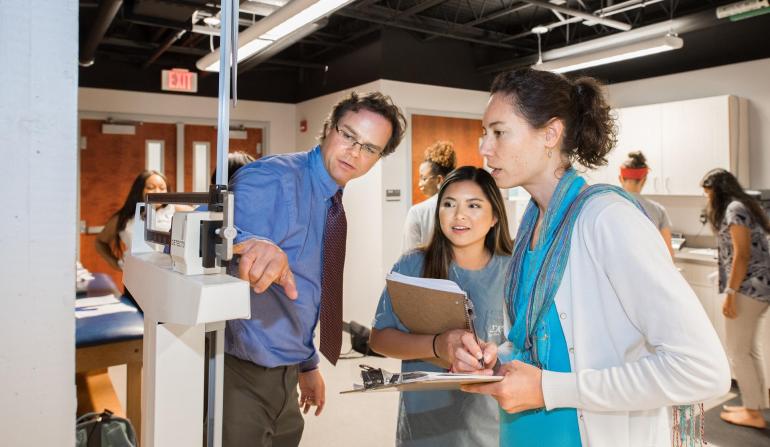Chronic Disease Prevention and Control
Chronic Disease Prevention & Control
The Master of Public Health program at the University of Tennessee at Chattanooga offers a concentration in Chronic Disease Prevention and Control (MPH: CD), preparing graduates to address the rising burden of chronic conditions such as heart disease, diabetes, obesity, and cancer in our communities.
This non-thesis graduate degree includes 42 semester credit hours and is fully accredited by the Council on Education for Public Health (CEPH).
Program Highlights:
- Flexible Formats: Courses are offered in online and hybrid formats, with most hybrid classes meeting once a week after 4:30 p.m. to accommodate working professionals.
- Full-Time and Part-Time Options: Students can pursue the program at their own pace with full-time or extended (part-time) study plans.
- Supportive Learning Environment: Students join a close-knit cohort that fosters collaboration, academic support, and lasting professional connections.
- Career-Focused Training: The curriculum is designed to ensure students gain both foundational public health competencies and concentration specific competencies in chronic disease prevention and control.
- Graduate Assistantships Available: Full-time and part-time graduate assistant (GA) positions are available (dependent on funding) to support students with tuition assistance and provide valuable professional experience within both university and community settings.
Whether you're a recent graduate or a working professional seeking to advance your public health career, our program is designed to help you succeed.
Explore the UTC MPH Chronic Disease Prevention and Control Program of Study and UTC MPH Chronic Disease Prevention and Control Program of Study Extended Option for more details.
Program Details
- Core Courses in Public Health
- Foundation in Public Health I - Exposure to Public Health Practice and Chronic Diseases
- Foundation in Public Health II - Health Systems and the Environment
- Foundation in Public Health III - Principles of Epidemiology & Biostatistics
- Principles of Health Promotion & Communication Strategies (3 cr)
- Program Planning, Implementation & Evaluation (3 cr)
- Community- Engaged Health Assessments (3 cr)
- Integrating Science & Ethics in Public Health Practice (1 cr)
- Concentration Courses
- Integrating Science & Ethics in Public Health Practice (1 cr)
- Professional Development (1 cr)
- Chronic Disease Epidemiology & Control (3 cr)
- Physical Activity & Public Health (3 cr)
- Public Health & Community Nutrition (3 cr)
- Advanced Epidemiology and Biostatistical Methods (3 cr)
- Integrated Learning Experiences
The Integrative Learning Experience (ILE) is a required, semester-long course (3 credits) offered each spring that serves as a culminating capstone experience for MPH students. The ILE provides students the opportunity to work with a community partner of their choice, integrating skills developed over the course of their program of study on an independent, final project.
As part of the ILE, student work with their community partner to identify a public health need and develop specific deliverable(s) that they complete for their community partner (i.e., survey, reports/reviews, intervention development and adaption). With guidance from the course instructor, students work with their community partner to demonstrate mastery of fundamental public health competencies while working as a part of an interdisciplinary team.
- Public Health Exposures
As part of the MPH CD program, students complete a three-credit-hour Public Health Exposure (PHE) course designed to connect classroom learning with real-world public health practice. Through 60 hours of field experience across different sectors, students gain insight into the roles of various agencies and their contributions to public health.
These field experiences act as a vital link between academic preparation and future practice in public health.
Potential exposure settings include:
- Hospitals and Community health clinics
- Health departments
- School systems
- Wellness programs
- Insurance companies
- Non-profit organizations
A list of PHE settings are available in Community Connections.



